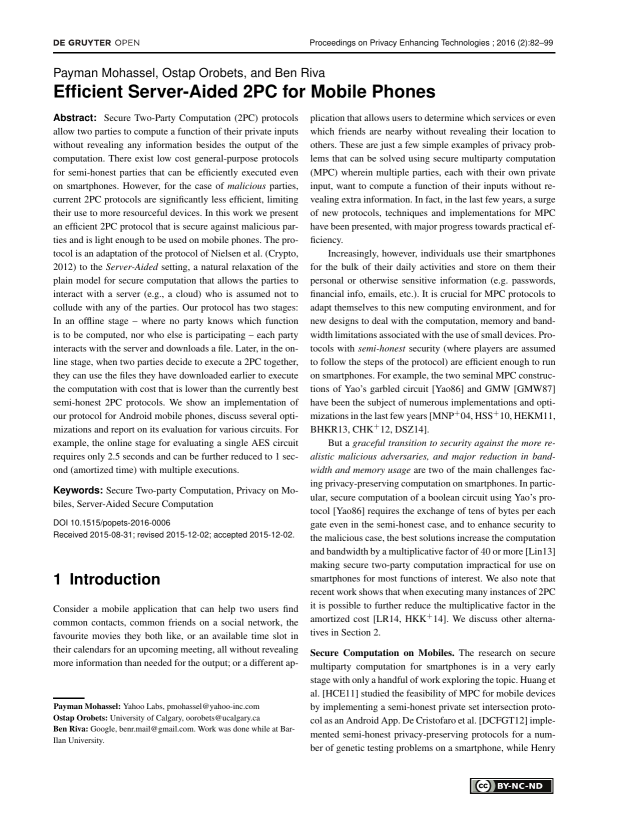Efficient Server-Aided 2PC for Mobile Phones
Authors: Payman Mohassel (Yahoo Labs), Ostap Orobets (University of Calgary), Ben Riva (Google)
Volume: 2016
Issue: 2
Pages: 82–99
DOI: https://doi.org/10.1515/popets-2016-0006
Abstract: Secure Two-Party Computation (2PC) protocols allow two parties to compute a function of their private inputs without revealing any information besides the output of the computation. There exist low cost general-purpose protocols for semi-honest parties that can be efficiently executed even on smartphones. However, for the case of malicious parties, current 2PC protocols are significantly less efficient, limiting their use to more resourceful devices. In this work we present an efficient 2PC protocol that is secure against malicious parties and is light enough to be used on mobile phones. The protocol is an adaptation of the protocol of Nielsen et al. (Crypto, 2012) to the Server-Aided setting, a natural relaxation of the plain model for secure computation that allows the parties to interact with a server (e.g., a cloud) who is assumed not to collude with any of the parties. Our protocol has two stages: In an offline stage – where no party knows which function is to be computed, nor who else is participating – each party interacts with the server and downloads a file. Later, in the online stage, when two parties decide to execute a 2PC together, they can use the files they have downloaded earlier to execute the computation with cost that is lower than the currently best semi-honest 2PC protocols. We show an implementation of our protocol for Android mobile phones, discuss several optimizations and report on its evaluation for various circuits. For example, the online stage for evaluating a single AES circuit requires only 2.5 seconds and can be further reduced to 1 second (amortized time) with multiple executions.
Keywords: Secure Two-party Computation, Privacy on Mobiles, Server-Aided Secure Computation
Copyright in PoPETs articles are held by their authors. This article is published under a Creative Commons Attribution-NonCommercial-NoDerivs 3.0 license.

